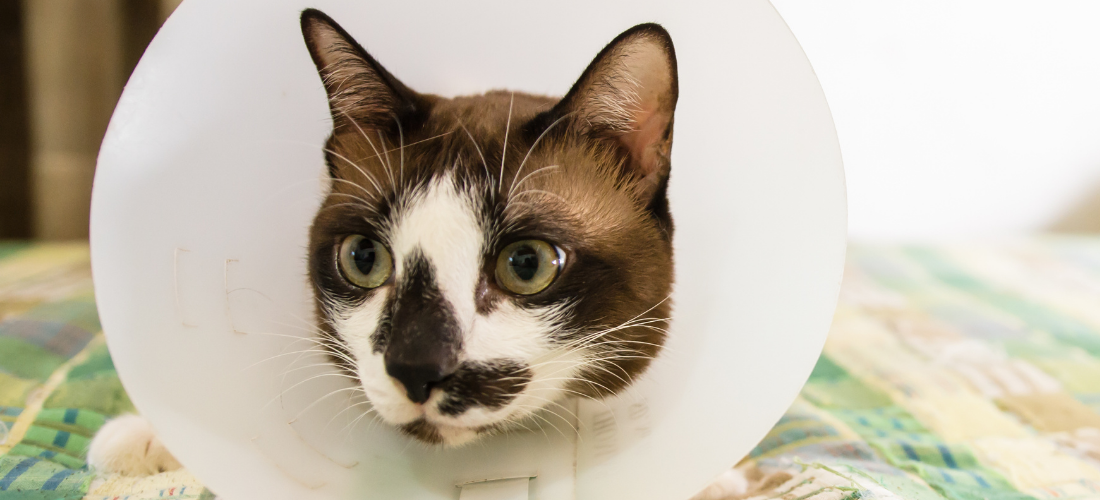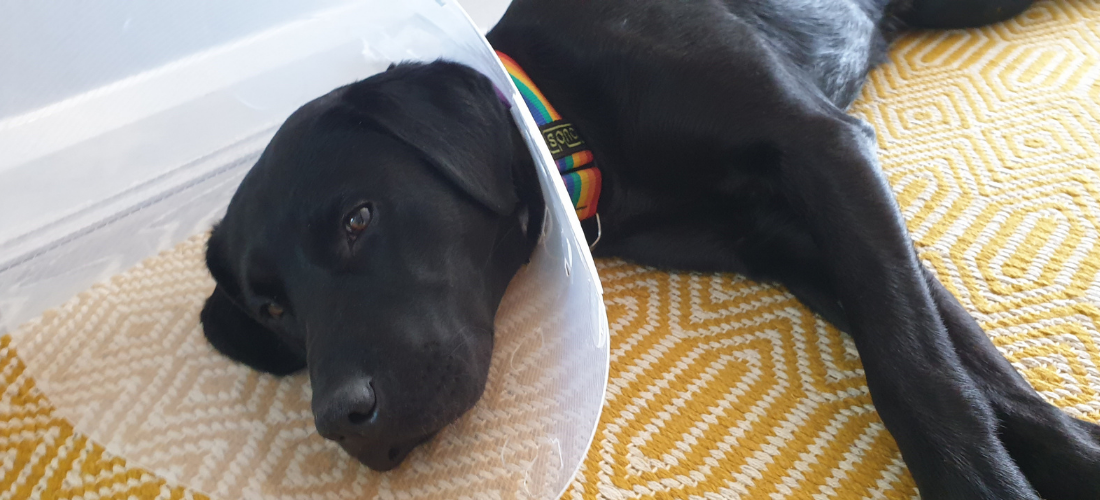World Spay Day
We've joined nine UK animal welfare charities to promote World Spay Day on 23 February 2021.
What is neutering?
Neutering – also known as castration, spaying and ‘fixing’ – is an operation carried out by a vet. It stops your pet from having unwanted litters and can prevent serious illnesses.
Male and female pets undergo different operations when they are neutered:
- Male pets are castrated – their testicles are removed.
- Female pets are spayed – their ovaries are removed and often their uterus (womb).
Both operations are carried out by a vet under general anaesthetic. Your vet will be able to give you advice on making sure your pet is ready for their operation and how you can help them recover at home.
During the pandemic, vets are having to prioritise the sickest pets, which means that many routine procedures such as neutering have been delayed or cancelled.
Vets across the UK have been asked by The British Veterinary Association (BVA) and Royal College of Veterinary Surgeons (RCVS) to prioritise urgent/essential treatment. They are also needing to comply with government guidance and social distancing to keep everyone safe. Sadly, this means that some practices are unable to offer their routine procedures such as neutering. Please keep in mind that your vets will be doing their best to care for some very sick pets and will really appreciate your patience and understanding during this challenging time.
If your vet is unable to neuter your pet at this time, you may want to contact some other local vets to see if they are able to help. You can use the RCVS website to find vets in your local area. In the meantime follow our guidance below to keep them safe.

We recommend most cats are neutered at four months old, as they can get pregnant from this age. Waiting until they are older could result in an unwanted litter of kittens if they are allowed to go outside or mix with other cats. If you have cats of different sexes in your household it’s really important to get them neutered, even if they’re related. You can find out more about neutering your cat on our Pet Health Hub.
If you’re unable to get your cat neutered at this time, here’s our advice on keeping your unneutered cat safe:
Keep them indoors
It’s essential to keep your kitten or cat indoors until they are neutered - they can get pregnant from as young as four months, and are at a higher risk of being injured or attacked by other cats. Read our free guide to keeping indoor cats happy and entertained.
Keep boys and girls separate
Keep male and female unneutered cats apart once they are four months old, even if they are related.
Insure your cat
Consider insuring your cat as soon as you get them, before any signs of illness start. This will provide some financial support if your pet needs care.

Most dogs can be neutered from six months old. Neutering your pet at this age can have benefits, especially for female dogs but the right age to neuter them will depend on lots of different factors such as their breed, behaviour and weight. Ask your vet when the right time for your dog is. You can find out more about dog neutering on our Pet Health Hub.
If you’re unable to get your dog neutered at this time, here’s our advice on keeping your unneutered dog safe during the pandemic:
Female dogs
If you have an unneutered female dog, while she is in season (on heat) you will need to keep her separate from all unneutered male dogs and on a short lead during walks. After each season you should monitor for signs of pyometra (womb infection) or false pregnancy.
Insure your dog
Insuring your dog as soon as you get them will provide some financial support if they need care.

Rabbits are social animals and it’s really important that they live in pairs so they don’t get lonely. Neutering of course allows male and female rabbits to live together happily without any unwanted litters. However, neutering can also help rabbits of the same gender live together without any behavioural problems caused by their hormones. Neutering rabbits can also come with some health benefits.
If you’re unable to get your rabbit neutered at this time, here’s our advice on keeping your unneutered rabbit safe during the pandemic:
Keep males and females apart
Keep male and female unneutered rabbits apart from three months old. Unneutered rabbits can breed even if they are related (i.e. brothers/sisters and father/daughters).
Keep wild rabbits out
Keep your pet rabbits away from wild rabbits by securing your garden or double fencing their living space if they live outdoors. If you have enough space to keep them happy, you might want to consider housing your rabbits inside until they are neutered and vaccinated.
Insure your rabbits
Consider insuring your rabbits as soon as you get them, before any signs of illness start. This will provide some financial support if your rabbits need care.
